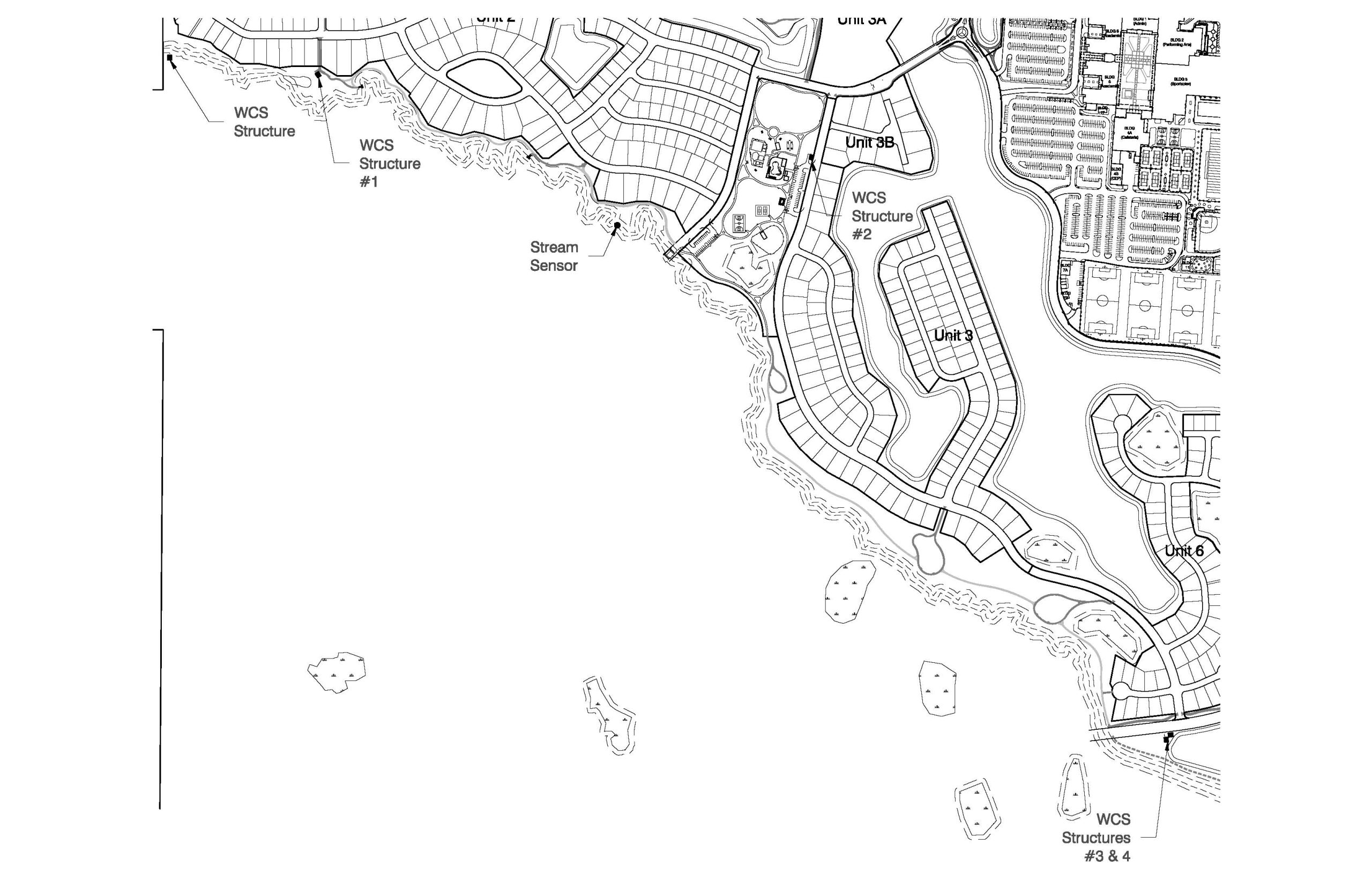Project Overview
The state of Florida faces significant water resource challenges, exacerbated by population growth, drought, flooding, and pollution from hurricanes. To address these issues, our client approved the exploration of new technologies to minimize the impact on water resources. Throughout the Landstone Development Area we embarked on a project to implement Water Conservation Structures (WCS). These structures aim to mitigate flood risks, reduce water loss, and enhance water quality in the region.
Location:
The Villages, FL - Several locations within the Landstone Development Area
Project Type:
Challenges
The Landstone Development Area, like many areas in Florida, relies heavily on stormwater ponds to manage runoff and mitigate flooding. However, traditional pond discharge structures are limited in their capacity to adapt to changing weather patterns and future development needs. Additionally, the expansion of The Villages into southern areas has raised concerns about surface discharges impacting nearby water bodies.
Solution
The design team at Clymer Farner Barley, Inc. recognized the need for innovative solutions to address these challenges. They proposed the implementation of large adjustable weirs in the WCS, which can be automated and responsive to weather events. These weirs are equipped with a cloud-based management system, water level sensors, and manual overrides, allowing for real-time monitoring and control of water levels.
Key Features
- Adjustable Weirs: The WCS features large adjustable weirs that can be controlled remotely to regulate water levels based on weather forecasts and storm events. This dynamic control mechanism helps optimize water storage and mitigate flood risks.
- Cloud-Based Management System: A cloud-based management system enables real-time monitoring of water levels and facilitates proactive decision-making. Stormwater managers can access data remotely and adjust settings as needed to maintain optimal water balance.
- Water Quality Monitoring: The system incorporates sensors to monitor water quality, ensuring that discharged water meets regulatory standards. This helps protect downstream water bodies from pollution and supports ecosystem health.
- Flexibility for Future Development: The WCS design allows for future expansion and integration with new development projects. As The Villages continues to grow, the system can adapt to changing demands and evolving environmental conditions.
Benefits
- Improved Water Management: The implementation of WCS enhances water conservation efforts by maximizing storage capacity and minimizing water loss. This contributes to sustainable water resource management in the region.
- Enhanced Flood Control: Dynamic control mechanisms enable proactive flood management, reducing the risk of inundation during extreme weather events. This enhances community resilience and minimizes property damage.
- Environmental Protection: By maintaining optimal water levels and monitoring water quality, the WCS helps protect local water bodies and ecosystems from pollution and degradation. This supports biodiversity and enhances the overall health of the environment.
- Cost Savings: Although initial investment in WCS technology may be significant, the long-term benefits in terms of reduced infrastructure maintenance and improved water resource management outweigh the costs. Additionally, the system’s flexibility allows for efficient use of resources and adaptation to future needs.
Conclusion
The implementation of Water Conservation Structures in the Landstone Development Area represents a proactive approach to water resource management in the face of increasing challenges. By harnessing innovative technology and adaptive design principles, the WCS project demonstrates a commitment to sustainability, resilience, and environmental stewardship. As Florida continues to grapple with water resource issues, initiatives like WCS serve as models for effective management and conservation practices.

